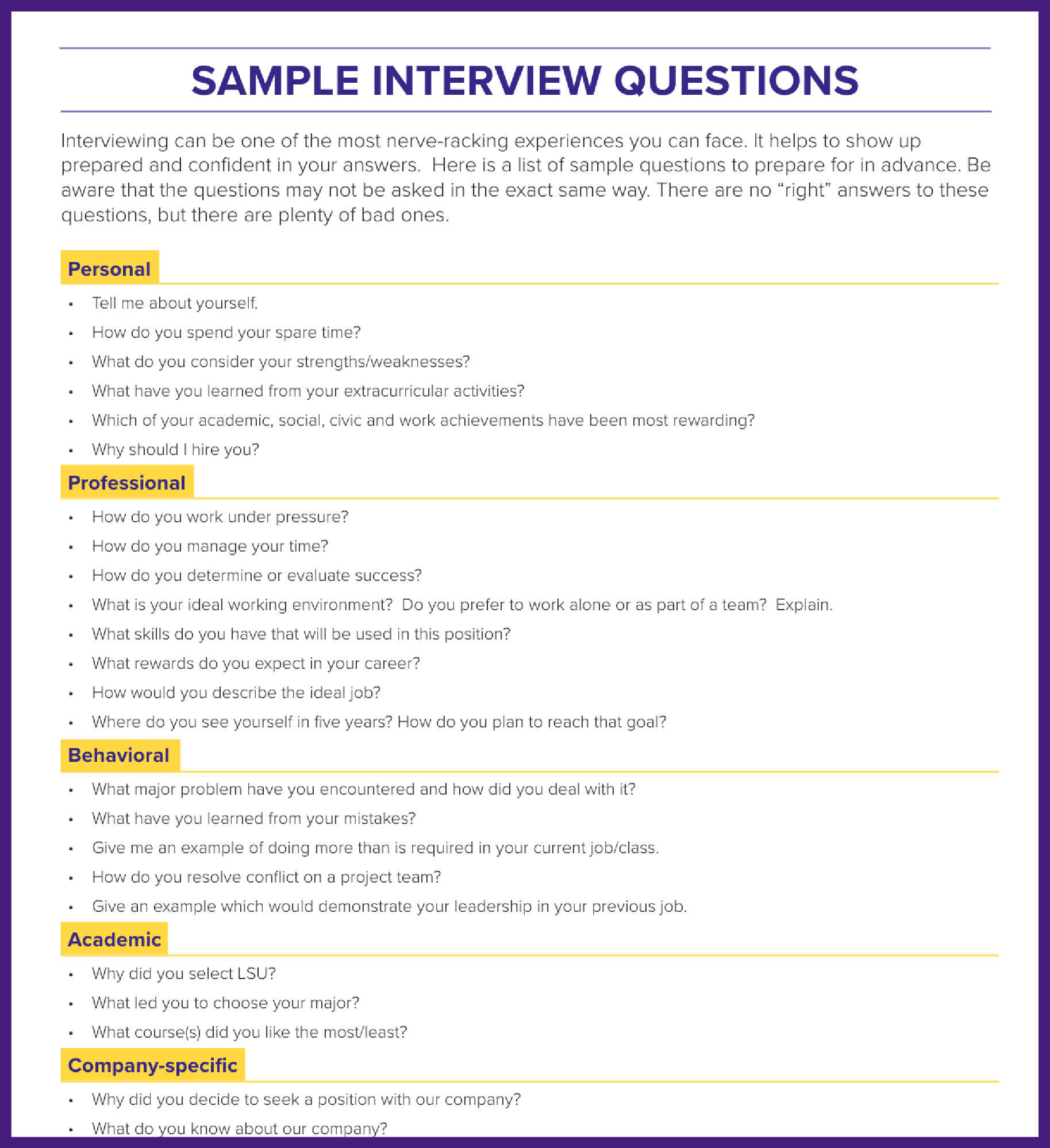Interview Preparation
At its core, an interview is a two-way conversation between you and the hiring manager
to see if the role is a good fit for you. Your values and interests can help guide
the conversation. Remember, you are interviewing them as much as they are interviewing
you. A successful interview involves research, practice, and making a good impression.
What does it mean to be a good fit in a role?
A role best suits you if you are capable, qualified, and interested in the work.
- Capable: Are you able to complete the work at hand?
- Qualified: Do you have the hard skills needed? Do your values align with the mission of the company?
- Interested: Do you like this field? Are you comfortable with the location or with the company itself?
Research
Before you interview, make sure you've done your homework. Researching the company ahead of time will help you see if it's a good fit for you. It'll also help you think through your own questions for them during the interview!
Get to Know the Company
Look into the company ahead of time and get to know it. Consider what is important
to you and how this company fits into your values.
See How Your Skills Relate
You've got the interview–now is the chance to verbalize your skills and experience
and link it to the work at hand.
Reach Out to Your Network
See if anyone in your community is connected with the company or industry you're looking into. Ask about their experience and get their insight on potential questions.
Prepare Your Own Questions
During the interview, ask questions that are important to you; goals of the company,
onboarding process, etc. Ask questions you haven't answered during your own research.
SAMPLE FOLLOW-UP QUESTIONS
Practice
 Build your confidence by practicing your interview beforehand. Use these sample questions
to help guide your practice.
Build your confidence by practicing your interview beforehand. Use these sample questions
to help guide your practice.
Behavioral Questions and the STAR Method
Behavioral interviews are the most common type of interview you will encounter. These can be questions that start with "Tell me a time when..." or "Give me an example of...". You'll have to think about your past experiences and behavior to ace these questions.
Remember the Ready to Roar career proficiencies – self-awareness, communication, civic engagement, digital literacy, critical thinking, global learning, problem solving, teamwork, intercultural knowledge, and leadership. Think of 1–2 specific examples of experiences that relate to those. Then, use the STAR method (Situation, Task, Action, Result) to talk about them.
- Situation: Give any background information or context the interviewer may need to understand the situation you were dealing with.
- Task: Discuss the task you were given or a task that came from the situation you described.
- Action: Describe your specific actions that completed or addressed the task.
- Result: Tell the interviewer what came from your action, whether good or bad, and what you learned from the experience.
Ace These Common
Interview Questions
- Present: tell about who you are currently (i.e. student at LSU, what you’re studying etc.)
- Past: Highlight past experiences (i.e. leadership, part-time jobs, etc.) that are relevant to the job
- Future: why you’re interested in this new opportunity that you’re applying to
Identify your strengths and how those align with the company’s goals and job description.
Practice your answer to this question. This will show that you are confident about what you can bring to the role.
Think about you, and how you are qualified, capable, and excited.
Make an Impression
Be your own storyteller. You have the experience – now it's time to share your passion and excitement for the role and and why you're interested in this next step of your career. Confidence is key.
First impressions matter and what you wear is important. Always dress a level above the day-to-day operations
Looking to update your professional wardrobe? Make an appointment at the Tailored Tiger Professional Clothing Closet.

Stay at the top of recruiters minds by reconnecting after your interview. A thank you note can be handwritten or sent electronically.
It's best practice to reference talking points from your conversation, and remind them why you'd be a great fit.

If an offer presents itself, be prepared to discuss salary compensation.
Know what salary you would need to live within your means.
Be confident in your skills and experience to help them understand why you deserve
what you're asking for.

Take the next step.



